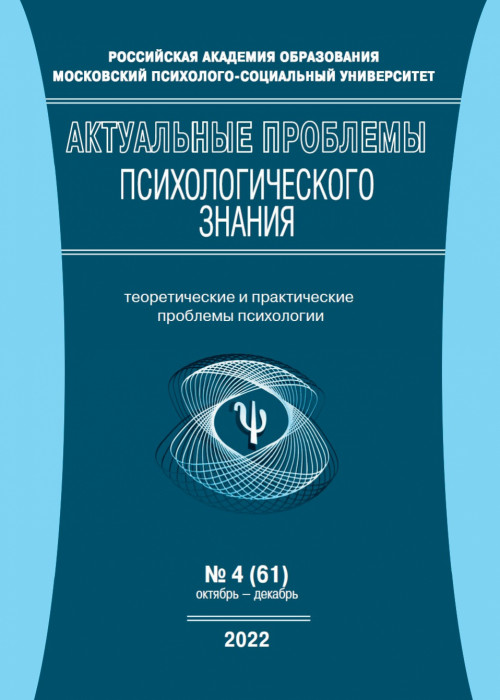Socio-psychological Disadaptation in Primary School of Children with Disabilities of Different Nosologies and Children Conditionally Healthy: Comparative Analysis
Annotation
The article shows the empirical results of the specificity of the children socio-psychological school disadaptation with disabilities in primary school with various nosologies. The results obtained on a sample of these children (N = 27) were compared with the results of the children without disabilities (N = 170). To study social psychological adaptation/maladjustment, the following methods were used: D. Stott’s observation map, the author’s method for studying social and psychological adaptation of a student with disabilities to the school process, the method “Specificity of undesirable behavior” (addiction test modification by V. D. Moskalenko). The results obtained allow us to single out the most pronounced socio-psychological maladaptive behavioral manifestations of children with disabilities in symptoms-complexes “depression”, “distrust of new people, things, situations”, “hostility towards adults”, “anxiety towards adults”, “lack of social normativeness/asociality”. Adaptive problems are present in 12 symptom-complexes on average. In children without disabilities, problems are observed in 4 symptom-complexes on average. In children without disabilities it discovered a mild degree of neurotic disorder, in children with disabilities — emotional-behavioral and intellectual difficulties: excess occurs according to symptoms-complexes “depression”, “distrust of new people, things, situations”, “anxiety in relation to adults”, “mental retardation”. The largest number of the problems connected with adaptation is found in children with autism spectrum disorders and moderate mental retardation. In boys and girls with disabilities, statistically significant differences in symptom complexes were not discovered. In children without disabilities, such differences were found for four symptom complexes.
Keywords
| Type | Article |
| Information | ACTUAL PROBLEMS OF PSYCHOLOGICAL KNOWLEDGE № 04/2022 |
| Pages | 133-146 |
| UDK | 316. 61;376.3; 373.3 |
| DOI | 10.51944/20738544_2022_4_133 |
